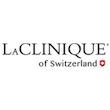Compare costs
Average cost of treatment in key countries
Include indicative costs for treatment, travel, insurance and accommodation
Get a quote
1. Complete the enquiry form
2. Select countries of interest
3. Providers respond directly
The two main international airports in Switzerland are located at Geneva and Zurich, but the cities of Basel, Berne and Lugano also receive international flights. Geneva International Airport is very close to the city centre and getting to and from the airport is simple via train or bus on the public transport network. The airport railway station is adjacent to the arrivals/departures and the journey time into Geneva city centre is just six minutes (to Geneva-Cornavin station) with regular services departing every 15 minutes. Alternatively, bus number 10 departs from in front of the train station and goes into the city centre (and Onex) every 10 minutes. To get to the Lake take bus number 28. You can also take a taxi from Geneva airport into the centre of town for a few Swiss Francs.
Zurich Kloten International Airport is located 11km north east of Zurich centre and trains run between Zurich main station and the airport every 10 minutes during peak periods (journey time is ten minutes) as well as buses to the surrounding area. From Zurich you will also find inter-city and regional trains to connect with main towns and cities such as Berne, Basel, St. Gallen, Lucerne, Constance, Geneva, Lausanne and Zug, with regular departures every 30 minutes as well as an hourly train to Lugano.
The international airport at Basel (Euroairport, Basel, Mulhouse, Freiburg) is located on French territory, just 10 minutes from Basel city centre, and is the only bi-national airport in the world. You can take bus number 50 (four times an hour, journey time 15 minutes) from the airport to Basel Central Train station, or just take a taxi into the city centre. Getting around Basel is straightforward with its efficient public transport system and frequent, modern trains which link the three Basel railway stations with Swiss cities and with mainland Europe. The boat berth is also close to the city centre at Elsässerrheinweg and for drivers, the major motorway junction connects Basel with the rest of Europe.
Switzerland has a unique, efficient and top class public transport system, not least because of its integrated travel system involving train, postal bus, boat and cable railway services from a combination of Swiss transport companies enabling visitors to enjoy scenic journeys and get right to the top of the hill for the most breathtaking vistas. The travel system also includes 'check in' for flights at railway stations and baggage free travel with the luggage transportation service.
The national rail company (the Swiss Federal Railways) has recently improved its rail services to offer shorter travel times and more frequent services and there are also plenty of fast reliable inter-European services from nearby countries (daily services from major cities in Germany, Italy, Austria, Spain, France, the Czech Republic, Hungary, and Scandinavia).
SBB (the Swiss travel and transport company) has information about public transport and driving in Switzerland and if you are planning on taking several journeys around the country then the Swiss Pass, which allows unlimited travel on the public transport for a minimum of four days up to one month, is great value.
Buses and trams run in the cities but remember to purchase your tickets from the machines before embarking. If you are travelling from other European locations then the CityNightLine, a unique travel arrangement involving a Swiss Airways flight between Switzerland, Denmark, Netherlands and Germany and an overnight passenger train journey is a good consideration. Visitors can also use Die Bahn to organise travel arrangements online (including hotels) and the Swiss timetable will help with route planning.
For drivers the usual car rental companies are available at airports and in major towns and cities and getting to Switzerland by road is hassle free with fast, quiet and well-maintained motorways through all surrounding countries. The roads are well maintained, and you can enjoy the country's auto-route network as well as some very enjoyable car window views. The Swiss auto-routes are tolled and a 'vignette' sticker must be displayed by all drivers wishing to use the auto-routes. These can be purchased on entering the country at border posts or from post offices and garages. Although it is possible to get around Switzerland without using the auto-routes, it will certainly speed up journey times and you will get to experience some of the most breathtaking car journeys, such as the route from Montreux to Lausanne which has the Jura on one side and Lake Geneva on the other. As with other European countries driving is on the right. For driving tips in Switzerland see Auto Europe's guide.
Switzerland remains 'neutral' and has not joined the European Union. It has kept its original currency, the Swiss Franc, otherwise known as CHF and €1 = approximately 1.25 CHF.
As far as accommodation goes you can expect to pay from around 150 CHF for a double room in a three star hotel in the major cities and from 220 CHF for a double room in a four star hotel. Prices for hotels with lakeside vistas are obviously more expensive. You can search for accommodation on the Switzerland tourist department's website.
Switzerland is in the Central European time zone, and is GMT + 2 in the summer time.

With a main base in Lugano, Switzerland and other centres in Italy and Dubai, LaCLINIQUE of Switzerl